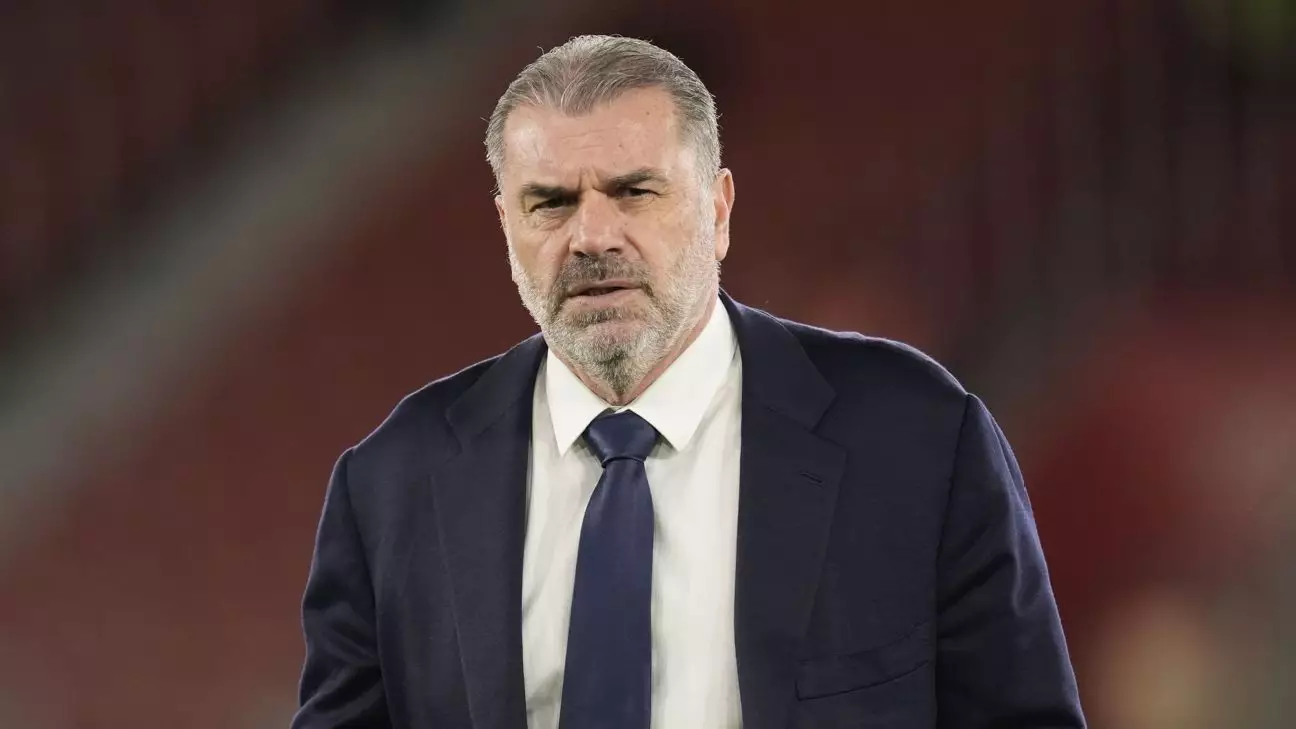Ange Postecoglou, the manager of Tottenham Hotspur, has found himself in a challenging position. Since taking over the club the previous summer, he has faced a barrage of criticism regarding his management style and approach to the game. Notably, his persistent emphasis on a forward-thinking, attacking strategy has drawn skepticism, especially as the team currently resides in a lackluster 10th place in the Premier League standings. Winning merely two out of their last seven games in all competitions has intensified this scrutiny, placing Postecoglou in a precarious situation where every decision becomes magnified.
The culture in football often demands immediate results, creating pressure on managers to yield quick victories. Postecoglou’s commitment to an attacking philosophy could be viewed as visionary, yet it often raises questions about its effectiveness in the high-stakes environment of the Premier League. Critics argue that this methodology leads to chaotic performances, as witnessed in their recent Carabao Cup quarterfinal against Manchester United — a match where Spurs, despite leading 3-0, nearly capitulated to a late comeback. Such instances feed into growing skepticism among fans and pundits alike.
Postecoglou’s accent has become an unwitting point of contention in the dialectic surrounding his management. During a recent press conference, he acknowledged that much of the critique directed toward him feels “offensive” and suggests that a portion of the commentary stems from an inherent bias against his Australian heritage. The manager’s assertion highlights a reality in sports where language and identity can unfairly influence public perception. His pointed remark about having a “silly accent” resonates with the notion that cultural nuances often shape narratives in unexpected ways, emerging as a psychological barrier that can overshadow a manager’s tactical acumen.
Prominent figures, such as Jamie Carragher, have been vocal in their condemnation of Postecoglou’s tactics, calling for players to take a more pragmatic approach on the pitch. While constructive criticism can foster growth, when it becomes pointedly personal or dismissive, it can create a toxic environment. Postecoglou’s resilience in facing such negativity demonstrates a strong character; he has shown a willingness to embrace critique, yet he maintains the right to reject disrespectful commentary.
Interestingly, amidst the tumultuous sea of criticism, Postecoglou has garnered unexpected support from rival managers. The Liverpool coach, Arne Slot, has openly praised Postecoglou for his efforts to revive Tottenham’s lost identity. This endorsement highlights a profound understanding among coaches, where mutual respect can exist despite competitive rivalries. Slot’s acknowledgment of Postecoglou’s challenges and accomplishments offers a counter-narrative to the prevailing negativity.
In many ways, Slot’s comments are a reminder that the landscape of football management is complex and multifaceted. Taking over a club with the legacy of managers like Jürgen Klopp is no easy task, yet Slot recognizes the hard work required to instill belief and structure within a squad. Similarly, Postecoglou’s commitment to developing a cohesive identity within Tottenham reflects an inherent understanding of the game’s nuances.
The Road Ahead: Challenges and Opportunities
As Tottenham seeks to refine its approach and navigate the challenges of the Premier League, Postecoglou stands at a crossroads. He must balance his vision of an attacking style with the need for pragmatic results. The path forward is fraught with dangers, as every match becomes pivotal for his reputation, yet the potential rewards of success could affirm his philosophy and earn him the respect of critics.
In the grand tapestry of football, managers are not merely strategists but also caretakers of culture and identity within their clubs. Postecoglou’s journey at Tottenham may serve as a critical case study, illustrating how perseverance, identity, and respect interact within the competitive pressures of sport. Ultimately, the scrutiny may continue, but it is through these trials that the foundation for a transformative legacy might be laid. The question remains: can Postecoglou turn the tide and solidify his vision for Tottenham, or will the weight of expectation prove too heavy to bear?

